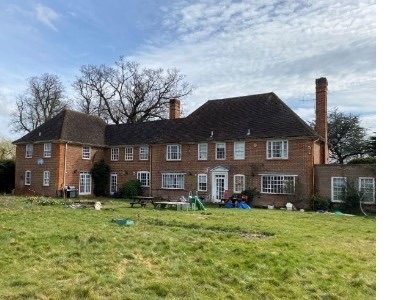Two fraudsters convicted of a £37m VAT swindle, one of the UK’s largest, have been forced to hand over £685,000 in pension funds.
Syed Mubarak Ahmed, 51, formerly of Iver Heath, Bucks, and Shakeel Ahmad, also 51, formerly of Northwood, Middlesex, were convicted in March 2007 for their part in a conspiracy to cheat HMRC.
The two were jailed at Northampton Crown Court in 2007 following a trial for their involvement in a VAT ‘missing trader’ fraud and are believed to owe at least £19m each. They were found guilty of one count of conspiracy to cheat the Revenue.
The original case, one of the most complex in UK financial crime history, involved 21 defendants including Mr Ahmed and Mr Ahmad.
The pair were given a further 10 years in prison in 2010 for refusing to hand over £184.6m owed to HMRC in lost revenue.
They were subject to a record £184.6m confiscation order secured by HMRC in 2010, believed to be one of the largest orders ever secured to recover criminal loss.
The CPS Proceeds of Crime Division said this week it had now recovered £2m from the sale of a mansion in Iver Heath, Buckinghamshire and over £685,000 from pensions they both held. This makes a total of over £10m recovered from their crime proceeds.
The CPS said the pair used a number of routes to hide their criminal gains including pensions, property and luxury cars.
To try to recover the debt HMRC restrained most of the pair’s assets including:
- A luxury flat in Knightsbridge worth £4.5 million
- A house in Harrow worth £2 million
- A house in Buckinghamshire worth £1.5 million
- A riverside flat in Battersea worth £500,000
- Two apartment tower blocks in Dubai worth £80 million
- High performance motorcars including a Ferrari 360 Modena convertible and a Mercedes 500CL
Adrian Foster, chief crown prosecutor, CPS Proceeds of Crime Division, said: “These defendants have tried to hide their assets in several different ways to avoid paying back the taxpayers’ money that they stole.
“We have overcome a number of challenges to enforce the orders against them and reclaim the money the men defrauded from the HMRC so they cannot benefit from it now, or in their retirement. Instead, it can now be used to pay for the fight against economic crime.”
“This case demonstrates we will pursue criminals for money they benefitted from their illegal activity, and we will continue to do so, no matter how many obstacles we face.”

